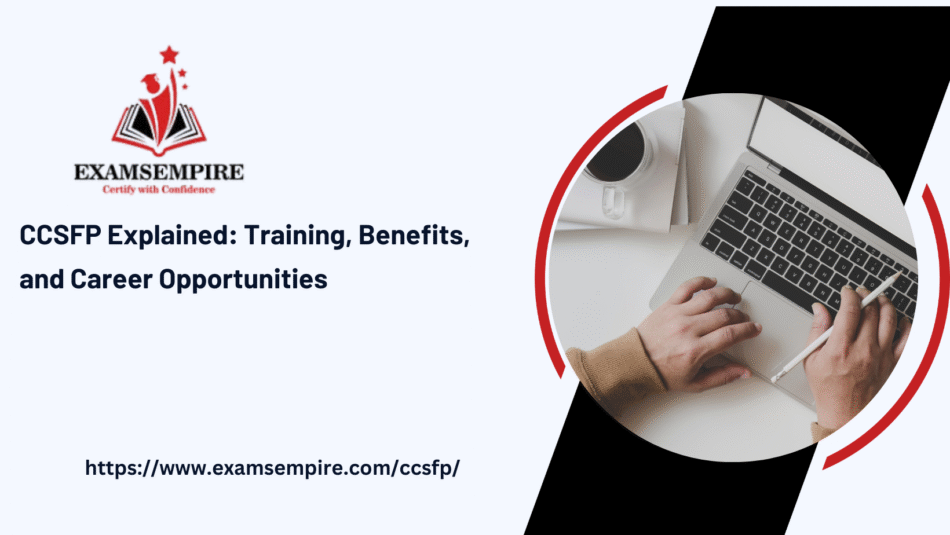What is CCSFP?
The Certified CSF Practitioner (CCSFP) certification is a credential designed for individuals who want to demonstrate their knowledge and expertise in applying the HITRUST CSF. The HITRUST CSF is a widely adopted framework that integrates multiple regulations, standards, and best practices into a single, certifiable structure. It consolidates requirements from HIPAA, ISO, NIST, GDPR, PCI DSS, and more, allowing organizations to comply with multiple regulations efficiently. CCSFP professionals are trusted to:- Assess organizations against HITRUST CSF requirements.
- Support remediation efforts to close compliance gaps.
- Guide businesses through HITRUST assessments and certification.
- Strengthen data protection strategies.
Exam Details
While HITRUST doesn’t release every exam detail publicly, here’s what candidates typically face:- Certification Body: HITRUST Alliance
- Credential Name: Certified CSF Practitioner (CCSFP)
- Format: Multiple-choice exam after training
- Duration: ~2–3 hours of testing
- Prerequisite: Completion of CCSFP training course
- Validity: Certification must be renewed periodically (often every 2 years)

- HITRUST CSF structure
- Assessment methodology
- Regulatory mappings
- Risk management practices
- Compliance reporting
CCSFP Exam Objectives
The training and exam are based on HITRUST CSF fundamentals. Key objectives include:- Understanding HITRUST CSF Framework
- Framework architecture and components
- Regulatory mappings and requirements
- HITRUST Assessment Process
- Types of HITRUST assessments (Readiness, Validated, Interim)
- Assessment lifecycle and methodology
- Scoping and Implementation
- Defining scope of assessments
- Implementing CSF controls
- Risk Management Principles
- Identifying, analyzing, and mitigating risks
- Risk-based approach to compliance
- Reporting and Certification
- HITRUST MyCSF tool usage
- Producing validated assessment reports
Why Pursue CCSFP?
Earning CCSFP certification provides a range of professional benefits:- Industry Recognition HITRUST is a leading compliance framework, and CCSFP validates expertise in security and compliance practices trusted globally.
- Career Advancement Certified professionals often qualify for roles such as Compliance Consultant, Risk Analyst, HITRUST Assessor, and Security Auditor.
- High Demand As regulations expand worldwide (GDPR, HIPAA, NIST, etc.), organizations actively seek CCSFP-certified experts.
- Employer Confidence Organizations gain confidence knowing their staff can manage complex compliance requirements effectively.
- Networking Opportunities HITRUST-certified professionals gain access to a network of compliance experts and organizations.
Preparation Strategy for CCSFP
The CCSFP certification is achievable with structured preparation. Here’s how to approach it:1. Complete HITRUST Training
- Enroll in the HITRUST CCSFP Training & Certification Course.
- This course covers the CSF framework, assessment methodology, and compliance management.
2. Study the HITRUST CSF Framework
- Download the HITRUST CSF framework documents.
- Study mappings to HIPAA, NIST, and other regulations.
3. Practice Using the MyCSF Tool
- The MyCSF tool is central to HITRUST assessments.
- Learn how to input assessment data, generate reports, and track compliance progress.
4. Review Sample Questions
- Use practice tests to get familiar with exam format and timing.
- Focus on scenario-based questions that reflect real-world compliance situations.
5. Join Study Groups
- HITRUST community forums and LinkedIn groups provide valuable peer support.
Tips for Passing the CCSFP Exam
- Understand, don’t memorize – The exam focuses on applying HITRUST CSF, not just recalling facts.
- Focus on methodology – Assessment process questions are common.
- Relate to real-world use cases – Think in terms of organizational compliance.
- Use the official course handbook – It’s your best study resource.
- Revise regularly – Consistent study sessions yield better results than last-minute cramming.
Common Challenges with CCSFP
- Broad Coverage – The framework integrates many standards, which can overwhelm beginners.
- Complex Terminology – HITRUST uses industry-specific terms that require careful study.
- Tool Familiarity – Not understanding MyCSF can hurt your exam performance.
- Time Management – Some candidates underestimate the study effort needed.
Career Opportunities After CCSFP
With CCSFP certification, professionals can pursue roles such as:- HITRUST Assessor
- Compliance and Risk Consultant
- Information Security Analyst
- IT Auditor
- Governance, Risk, and Compliance (GRC) Specialist
Article Categories:
Education








